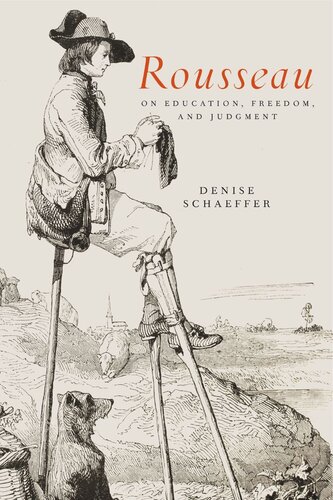

Most ebook files are in PDF format, so you can easily read them using various software such as Foxit Reader or directly on the Google Chrome browser.
Some ebook files are released by publishers in other formats such as .awz, .mobi, .epub, .fb2, etc. You may need to install specific software to read these formats on mobile/PC, such as Calibre.
Please read the tutorial at this link: https://ebookbell.com/faq
We offer FREE conversion to the popular formats you request; however, this may take some time. Therefore, right after payment, please email us, and we will try to provide the service as quickly as possible.
For some exceptional file formats or broken links (if any), please refrain from opening any disputes. Instead, email us first, and we will try to assist within a maximum of 6 hours.
EbookBell Team

4.4
42 reviewsIn Rousseau on Education, Freedom, and Judgment, Denise Schaeffer challenges the common view of Rousseau as primarily concerned with conditioning citizens’ passions in order to promote republican virtue and unreflective patriotism. Schaeffer argues that, to the contrary, Rousseau’s central concern is the problem of judgment and how to foster it on both the individual and political level in order to create the conditions for genuine self-rule. Offering a detailed commentary on Rousseau’s major work on education, Emile, and a wide-ranging analysis of the relationship between Emile and several of Rousseau’s other works, Schaeffer explores Rousseau’s understanding of what good judgment is, how it is learned, and why it is central to the achievement and preservation of human freedom. The model of Rousseauian citizenship that emerges from Schaeffer’s analysis is more dynamic and self-critical than is often recognized. This book demonstrates the importance of Rousseau’s contribution to our understanding of the faculty of judgment, and, more broadly, invites a critical reevaluation of Rousseau’s understanding of education, citizenship, and both individual and collective freedom.